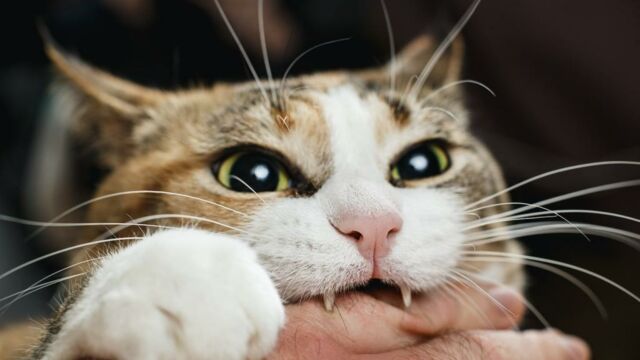According to a study published by the scientific journal PLOS Medecine, lockdowns haven't been kind to our animal friends.
Discover our latest podcast
One might imagine that spending more time at home would make our pets happy and engaged, but it turns out that this might not always be the case. Especially for our feline friends. Emmanuelle Titeux, veterinarian who specialises in behaviour, explains with a touch of humour:
If some animals had been able to answer the questionnaire, some would surely have said: 'I have to contend all day with that doofus who spends his time tickling me all day... I can't take it anymore!'
An unusual situation
Some cats simply do not appreciate the omnipresence of their master on their territory. Emmanuelle Titeux even evokes 'apathy' to describe the state in which some cats find themselves:
The animal finds itself in a context where it has no way of adapting and puts itself in a form of apathy. It is prostrate in a corner, it eats its food, but hardly produces any more behaviours.
If you are faced with a change in attitude on the part of your cat, for example being particularly aggressive towards you, it is best not to force contact, and to let them come to you instead.
Fortunately, this phenomenon does not affect all cats. Some may have even, conversely, started sticking like a barnacle to their owner, according to some testimonies on social networks.
Animals, a natural anti-depressant
A study carried out on 32 people confirmed the positive effects of pets on isolated and confined people. 90% of the individuals questioned explained that they felt comforted by stroking their animals.
This proximity can help to compensate for certain physical and mental stressors. Hospitals, nursing homes and other healthcare establishments should encourage the presence of animals among residents.
Are you looking for a pet? In our video at the top of the article, discover 5 breeds of long-haired cats!















